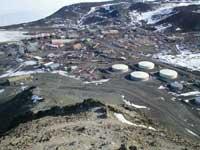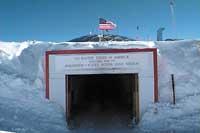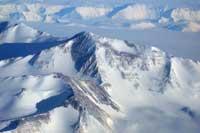Race for catching Antarctic bacteria
2004/02/11 Lexartza Artza, Irantzu - Elhuyar Zientziaren Komunikazioa
Already collected are the estremófilos that inhabit areas of Antarctica, microorganisms capable of living in extreme conditions, on which interest grows day by day. According to the researchers, the use of these microorganisms (mainly bacteria) allows obtaining new medicines and industrial compounds, among others. In addition, they can have multiple commercial uses.

According to the authors of the report, the Antarctic Treaty does not adequately regulate certain aspects of bioprospecting. According to this treaty, commercial exploitation of Antarctica is prohibited, but scientific research is possible. So far the exploitation has been carried out jointly by public and private bodies, but now it can be difficult to distinguish between scientific and commercial objectives. To this we must add the problems that may arise with international law, the issue of ownership and patents of genetic materials and their possible repercussions on the environment. According to them, competition for results as soon as possible can cause an avalanche of collectors.
Antarctic microorganisms are not the only target of raw material seekers for research. This area offers other resources and is also studying fish and algae for use in medicine, cosmetics and food technology.
They still do not know what risk this issue may pose in the environment, but if their expectations are met it will be a topic to consider. One of the conclusions of the report is that the collection of estremófilos questions the existence, collaboration and transparency of Antarctic scientific research.

Gai honi buruzko eduki gehiago
Elhuyarrek garatutako teknologia





